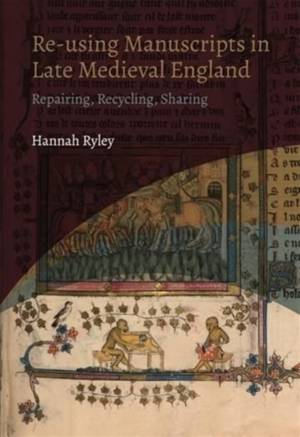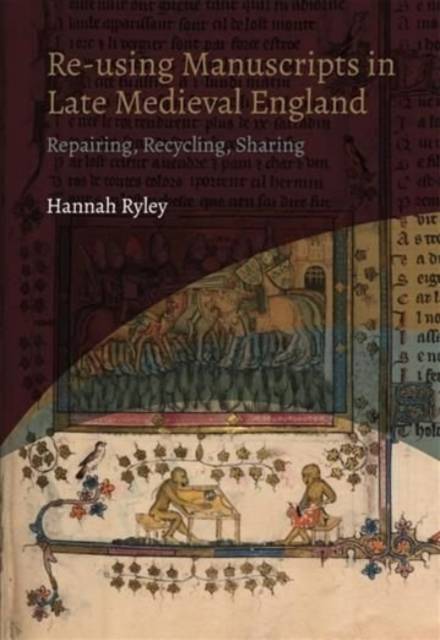
- Afhalen na 1 uur in een winkel met voorraad
- Gratis thuislevering in België vanaf € 30
- Ruim aanbod met 7 miljoen producten
- Afhalen na 1 uur in een winkel met voorraad
- Gratis thuislevering in België vanaf € 30
- Ruim aanbod met 7 miljoen producten
Zoeken
€ 177,45
+ 354 punten
Uitvoering
Omschrijving
During the "long fifteenth century" (here, 1375-1530), the demand for books in England flourished. The fast-developing book trade produced them in great quantity. Fragments of manuscripts were often repurposed, as flyleaves and other components such as palimpsests; and alongside the creation of new books, medieval manuscripts were also repaired, recycled and re-used.
This monograph examines the ways in which people sustained older books, exploring the practices and processes by which manuscripts were crafted, mended, protected, marked, gifted and shared. Drawing on the codicological evidence gathered from an extensive survey of extant manuscript collections, in conjunction with historical accounts, recipes and literary texts, it presents detailed case studies exploring parchment production and recycling, the re-use of margins, and second-hand exchanges of books. Its engagement with the evidence in - and inscribed on - surviving books enables a fresh appraisal of late medieval manuscript culture in England, looking at how people went about re-using books, and arguing that over the course of this period, books were made, used and re-used in a myriad of sustainable ways.
This monograph examines the ways in which people sustained older books, exploring the practices and processes by which manuscripts were crafted, mended, protected, marked, gifted and shared. Drawing on the codicological evidence gathered from an extensive survey of extant manuscript collections, in conjunction with historical accounts, recipes and literary texts, it presents detailed case studies exploring parchment production and recycling, the re-use of margins, and second-hand exchanges of books. Its engagement with the evidence in - and inscribed on - surviving books enables a fresh appraisal of late medieval manuscript culture in England, looking at how people went about re-using books, and arguing that over the course of this period, books were made, used and re-used in a myriad of sustainable ways.
Specificaties
Betrokkenen
- Auteur(s):
- Uitgeverij:
Inhoud
- Aantal bladzijden:
- 240
- Taal:
- Engels
- Reeks:
- Reeksnummer:
- nr. 4
Eigenschappen
- Productcode (EAN):
- 9781914049064
- Verschijningsdatum:
- 16/08/2022
- Uitvoering:
- Hardcover
- Formaat:
- Genaaid
- Afmetingen:
- 170 mm x 244 mm
- Gewicht:
- 580 g

Alleen bij Standaard Boekhandel
+ 354 punten op je klantenkaart van Standaard Boekhandel
Beoordelingen
We publiceren alleen reviews die voldoen aan de voorwaarden voor reviews. Bekijk onze voorwaarden voor reviews.








